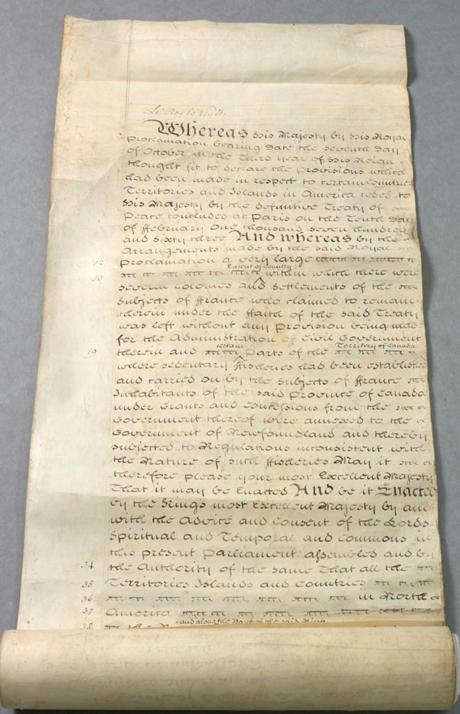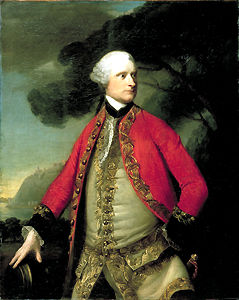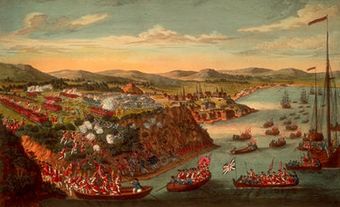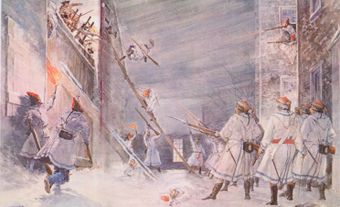In 1759, the British defeated the French on the Plains of Abraham. Soon after, the British took control of Quebec (see also The Conquest of New France.) The Quebec Act of 1774 was passed to gain the loyalty of the French who lived in the Province of Quebec. The Act had serious consequences for Britain’s North American empire. The Quebec Act was one of the direct causes of the American Revolution.
(This article is a plain-language summary of The Quebec Act, 1774. If you are interested in reading about this topic in more depth, please see our full-length entry on The Quebec Act, 1774.)

Background
In 1759, the British defeated the French on the Plains of Abraham. The Plains of Abraham is in Quebec City. Soon after, the British took control of Quebec. In 1763 the British and the French signed the Treaty of Paris to officially end the Seven Years’ War. France gave Britain most of its territory in North America.
The Royal Proclamation of 1763
The British wanted to have more power than the French. And, they wanted the French to be just like them. In other words, they wanted the French to assimilate. In 1763 Britain wrote the Royal Proclamation to make sure this would happen. The Proclamation did not let the French use the type of law they used before (see Civil Law.) They had to use the British style of law (see Common Law.) In addition to this, the Proclamation made it difficult for the French to get important jobs in the government. Most French people were Catholic. Most English people were Protestant (see also Anglicanism). The Proclamation stated that Catholics had to say they were loyal to the king if they wanted to work for the government. Most Catholics did not want to do this.
Why Did the Royal Proclamation of 1763 Fail?
The Royal Proclamation failed. It failed for two important reasons. First, the French did not want to become like the British. They liked their language, culture, and traditions and they wanted to keep them. The second reason why the Proclamation failed is that not many people from Britain moved to Canada. This means there were many more French speaking people than English speaking people in Canada. So, the French had a lot of power. Knowing this, the governors James Murray and Lord Guy Carleton thought of ideas to make the French loyal to Britain. Many of these ideas were used by the British Parliament when it wrote the Quebec Act in 1774.
Introduction of the Quebec Act of 1774
The Quebec Act allowed French Catholics to obtain good jobs in the government. It also let the French practice their style of law. It gave more power to the Catholic Church too. Thanks to the Quebec Act, the Church could collect tithes (money) again. The Quebec Act also permitted the French to re-establish the seigneurial system. A seigneur was someone who owned land. The people who farmed the land were called habitants.
Why is the Quebec Act of 1774 Important?
The Quebec Act of 1774 is very important for two reasons.
First, it pleased most of the French people and because of this they did not rebel against the British.
Second, it made many Americans very angry because they thought the British were too lenient to the French. Another reason why the Quebec Act made the Americans angry is because it did not permit settlers to move into the Ohio River Region. This region had much fertile land that the Americans wanted. The Quebec Act, along with other acts written by the British in 1774 were called “intolerable” by anti-British Americans. Intolerable means unacceptable or unbearable. The American Revolution began one year after the Intolerable Acts were passed.

 Share on Facebook
Share on Facebook Share on X
Share on X Share by Email
Share by Email Share on Google Classroom
Share on Google Classroom





